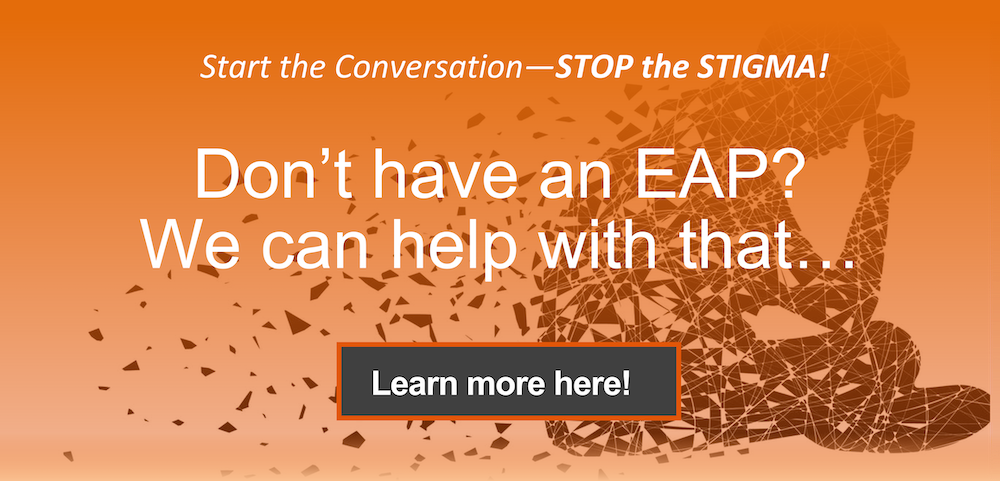Picture this: two equally talented employees receive the same feedback from their manager. One leaves the meeting energized and motivated, ready to tackle the challenges ahead. The other walks away feeling deflated, questioning their abilities, and wondering if they're in the right role.
Same message, same manager, completely different outcomes.
The difference isn't in the quality of the feedback or the competence of the employees. It's in how that feedback was delivered and received, shaped by the unique personalities, communication styles, and motivational drivers of the individuals involved.
This scenario plays out in workplaces everywhere, every day. Managers who excel at motivating one team member may inadvertently discourage another. Communication that inspires confidence in some employees can trigger anxiety in others. Recognition that feels meaningful to one person might feel empty or even uncomfortable to someone else.
Each Employee is Different
The most effective leaders understand a fundamental truth that often gets overlooked in management training: there is no universal approach to bringing out the best in people. Each team member brings a unique combination of strengths, communication preferences, motivations, and work styles that require thoughtful, individualized leadership.
The stakes for getting this right have never been higher. Forbes reports that:
- 90% of workers believe empathetic leadership improves job satisfaction
- 79% believe it decreases employee turnover
- Nearly half of employees admit they've left a role because of a boss who wasn't empathetic
Yet many managers default to treating everyone the same way, using the management style that feels most comfortable to them rather than adapting to what each person actually needs.
The Hidden Cost of Mismatched Management
When management styles don't align with individual personality needs, the consequences can extend beyond hurt feelings or awkward meetings. The ripple effects touch every aspect of workplace performance and culture, often in ways that aren't immediately obvious but accumulate over time.
Consider the analytical employee who needs detailed information before making decisions. When rushed through quick verbal instructions, they may appear hesitant or lacking in confidence, leading to missed opportunities or being overlooked for advancement.
Meanwhile, the action-oriented team member who thrives on autonomy may become disengaged when micromanaged, their natural drive and initiative gradually diminishing under excessive oversight.
These mismatches create stress not just for employees, but for managers as well. Leaders who don't understand why their approaches work brilliantly with some team members while falling flat with others often blame themselves or question their leadership abilities.
the organizational cost
The financial implications can be significant. Poor management practices contribute to:
- Decreased productivity
- Increased absenteeism
- Higher turnover rates
- Loss of institutional knowledge when talented employees leave
When talented employees leave because they don't feel understood or supported, organizations lose not only their investment in hiring and training but also the relationships and expertise those individuals built over time.
Beyond Surface-Level Differences
Working effectively with different personalities requires looking deeper than obvious traits or behaviors. While it's tempting to categorize people as simply "introverted" or "extroverted," "detail-oriented" or "big picture," the reality is far more nuanced.
Personality affects everything from how people process information and make decisions to what motivates them and how they prefer to receive recognition.
One of the most practical ways to understand personality differences is through formal assessment tools, such as Gallup CliftonStrengths, Myers-Briggs Type Indicator, or DISC Assessment. These aren't about putting people in boxes or making excuses for behavior but about creating a shared language for understanding how different team members operate at their best.
The key to successful personality assessment isn't the specific tool you choose, but how you use the results. The most effective approaches involve:
- Team-wide participation where everyone, including leaders, takes the assessment and shares their results openly. This creates psychological safety and demonstrates that differences are valued rather than judged.
- Practical application sessions where team members discuss what they need to feel valued, how they prefer to receive feedback, and what communication styles work best for them.
- Ongoing reference where assessment results become part of regular team conversations, helping members understand each other's reactions and adapt their approach in real-time.
Remember, the goal isn't perfect categorization but increased awareness and empathy.
Getting Started: A Practical Implementation Roadmap
Understanding personality differences is only valuable if it translates into concrete changes in how you lead and manage. Here's a step-by-step approach to begin implementing personality-aware leadership:
Step 1: Start with Observation
Before making any changes, spend time observing how different team members naturally operate:
- Communication patterns: Who speaks up quickly in meetings versus who takes time to process? Who prefers email versus phone calls or in-person conversations?
- Work preferences: Who collaborates naturally versus who seems to prefer independent work? Who asks detailed questions versus who jumps into action?
- Stress responses: How do different team members react when deadlines are tight or priorities shift? Who becomes withdrawn versus who becomes more vocalist?
- Recognition preferences: Pay attention to how people respond to different types of acknowledgment - public praise, private feedback, written recognition, or peer appreciation.
Step 2: Ask the Right questions
Rather than making assumptions, have direct conversations with team members about their preferences:
- "What type of information do you need to feel confident making decisions?"
- " How do you prefer to receive feedback - in the moment, during scheduled check-ins, or in writing?"
- "What work environment helps you be most productive?"
- "When you're feeling stressed or overwhelmed, what kind of support is most helpful?"
- "How do you prefer to brainstorm or solve problems - independently first, or talking through ideas with others?"
Step 3: Make Small adjustments first
You don't need to overhaul your entire management approach overnight. Start with simple changes:
- Meeting formats: Offer agenda items in advance for those who need time to prepare, while still allowing space for spontaneous discussion
- Feedback delivery: Experiment with providing some team members with written follow-ups to verbal conversations.
- Project assignments: Consider who might thrive with detailed instructions versus
broad objectives. - Recognition approaches: Vary how you acknowledge good work based on individual preferences.
Step 4: Monitor and adjust
Pay attention to how these small changes affect team dynamics and individual performance:
- Are previously quiet team members contributing more when given advance notice of discussion topics?
- Do certain employees seem more confident when they receive detailed project briefs?
- Are stress levels decreasing when you adjust your communication style?
- Is overall team collaboration improving as people understand each other's working styles better?
For Employees: Understanding Yourself and Others
While much of the responsibility for personality-aware management falls on leaders, individual contributors also benefit from understanding their own personality patterns and learning to work effectively with colleagues who approach work differently.
know your own patterns
Self-awareness is the foundation of professional growth. Take time to reflect on your own work preferences, communication style, and stress responses.
Consider:
- Do you prefer detailed instructions or general direction?
- Are you energized by collaboration or do you need quiet time to think?
- How do you prefer to receive feedback?
- What situations cause you stress, and how do you typically respond?
Understanding your own patterns helps you communicate your needs more effectively and seek out work environments and relationships that support your best performance.
extend grace to others
When a colleague's approach feels frustrating or confusing, consider that they might simply be operating from a different personality framework than you are. Someone asking for clarification might not be challenging your ideas—they may need more context to move forward confidently.
The colleague who seems to avoid brainstorming sessions might do their best thinking independently and can contribute more effectively with time to process ideas privately first.
Seek Support When Needed
Personality differences can sometimes create stress or conflict that feels overwhelming to navigate alone. This is especially true when personality mismatches affect job performance, career advancement, or workplace relationships.
Employee assistance programs can provide valuable support for developing better communication skills, managing workplace stress, and building resilience in challenging work relationships. These resources offer confidential counseling and practical strategies for navigating complex interpersonal dynamics while maintaining professional effectiveness.
The Path Forward
Working effectively with different personalities isn't about becoming a different leader or abandoning your authentic management style. It's about expanding your toolkit and approaching each team member with curiosity rather than assumptions.
The investment in understanding personality differences pays dividends not just in improved team performance, but in the satisfaction that comes from helping others reach their full potential. When managers learn to adapt their approach to individual needs while maintaining consistent standards and expectations, they create environments where everyone can contribute their best work.
When you partner with Ulliance, our Life Advisor Consultants are always just a phone call away to teach ways to enhance your work/life balance and increase your happiness. The Ulliance Life Advisor Employee Assistance Program can help employees and employers come closer to a state of total well-being.
Investing in the right EAP or Wellness Program to support your employees will help them and help you. Visit https://ulliance.com/ or call 866-648-8326.
The Ulliance Employee Assistance Program can address the
following issues:
• Stress about work or job performance
• Crisis in the workplace
• Conflict resolution at work or in one’s personal life
• Marital or relationship problems
• Child or elder care concerns
• Financial worries
• Mental health problems
• Alcohol/substance abuse
• Grief
• Interpersonal conflicts
• AND MORE!
References:
Best Leadership Tips For 3 Most Common Workplace Personalities; Forbes; Cheryl Robinson
https://www.forbes.com/sites/cherylrobinson/2025/01/25/best-leadership-tips-for-the-3-most-common-workplace-personalities/
Empathy Is The Most Important Leadership Skill According To Research; Forbes; Tracy Brower https://www.forbes.com/sites/tracybrower/2021/09/19/empathy-is-the-most-important-leadership-skill-according-to-research/
How to Manage Different Workplace Personalities; SHRM; Dana Wilkie
https://www.shrm.org/topics-tools/news/managing-smart/how-to-manage-different-workplace-personalities
Strategies for Managing Different Personalities in the Workplace; Tricia Atchinson
https://www.linkedin.com/pulse/strategies-managing-different-personalities-workplace-tricia-atchison/



.jpg?width=600&height=338&name=2Google%20Review%20NEW%20w%20click%20here%20button%20(1).jpg)
